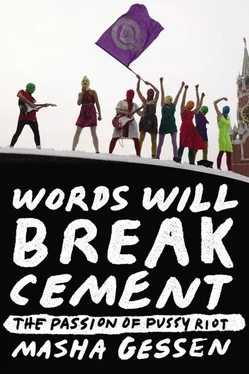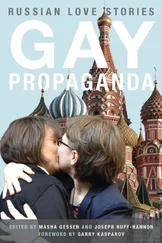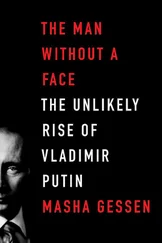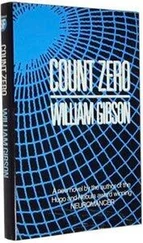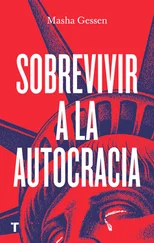She came as a surprise, conceived on a night of heavy drinking and arriving on Revolution Day, November 7, 1989, one of the most vodka-soaked days of the year. By then, Gorbachev’s war on alcoholism was at its peak, with the vineyards in the south razed and vodka rationed across the land. So for many Soviet citizens it was a day soaked in industrial alcohol, cologne, or, as was the case with Andrei, medical spirits. No one had been expecting Nadya. She was given the name Nadezhda, which means “hope,” and parked, for the next few years of her life, with Andrei’s mother, Vera, which means “faith.”
Vera lived in Krasnoyarsk. Katya lived in Norilsk. Andrei lived in various places; when Nadya was conceived and born, for example, he was living in a village outside of Arkhangelsk, in the very north of the European part of Russia. He had a gig as chief doctor at a rural hospital, unfettered access to medical spirits, and rare access to his wife. “That’s part of the reason we parted ways. I think that distance is important and a relationship works better when people take breaks from each other.” The distance in this case exceeded a thousand miles. “I guess Katya had a different opinion. She said I killed the woman in her. It’s a strange accusation, though I’m not a woman, so I wouldn’t know. And anyway, it’s not like she was wasting time herself.” All the more reason to be surprised by Nadya’s arrival.
Shipping the baby off to Krasnoyarsk was not an unusual arrangement: young Russian couples often placed their children with grandparents, who themselves had likely been raised by their parents’ parents. Katya showed up at regular intervals, while Andrei was always anything but regular: “I am a holiday. I was always highly prized—both because girls always privilege men and because I provide a contrast to the women’s strict ways.”
In the early 1990s, Andrei moved to Krasnoyarsk and Katya followed him. They had plans, a friend who had secured funding for a medical center, a view to making a home for their family. But the Soviet Union collapsed, and soon so did the friend’s funding scheme, and Andrei and Katya’s marriage. Andrei left for Moscow. Katya took the child and returned to Norilsk.
———
NORILSK WAS A DARK PLACE. Forty-five days out of the year the city fumbled in the pitch-blackness of polar night; for another six months the blackness took turns with a gray haze that was neither day nor night. And when polar day arrived in May, it exposed snowbanks hardened by the winter and blackened by the fine particles with which the metals plants showered the city year-round. As the snow melted, more blackness emerged—all the way to the banks of the Norilskaya River, where some natives swam despite temperatures that rarely exceeded fifty-five degrees, even in July. The banks were coarse sand and rocks filled with the metals that made Norilsk the mining mecca it is. And one of the ten most polluted places on the planet.
In the summers, Andrei yanked Nadya out of the darkness and transported her to hectic Moscow or the green leafy outskirts of Krasnoyarsk, where his mother still lived. Some summers, Katya finagled a ticket to a seaside summer camp in the Russian south and informed Andrei of its location so he could find a rental cot nearby and take Nadya out of camp for a few weeks. The colorful, warm, light-soaked environments in which Nadya spent time with Andrei no doubt enhanced the magical effect of father “the holiday.”
“She would come and see ducks [in a Moscow canal] and she wouldn’t just say, ‘Ducks!’ She would ask, ‘Are these real ducks?’ She lived at the end of the earth, her only image of duck was virtual, like a computer-generated sign,” Andrei told me. And then he would commence his performance. How did he do it? Andrei took the question very seriously: self-effacement does not run in the Tolokonnikov family. “A hypnosis teacher of mine used to say you have to aim your arrow low: all this talk of superego or social phenomena makes no sense; what makes a difference is the biological, reptilian, sleeping life of the brain. The trick is to awaken that sleeping volcano—that is where true creativity begins. That’s what I worked on. Of course, I might have gone overboard. She might have taken my instruction too literally. But we will see what happens when she is released from prison.” When Nadya returned from a visit with Andrei at the age of seven, Katya’s new husband, Misha, demanded to know what Andrei had done to the child: a wallflower had been transformed into a rebel.
For most of the dark majority of her year, Nadya studied. “She was a straight-A student,” Andrei told me without a hint of pride or admiration. “She would spend five or six hours a day studying at home. There is a picture of her sleeping at her computer. I don’t know where she got it: certainly not from me or her mother. And it’s not like her mother made her study. It may have been a way to escape from reality, by running not into the street or to bad company, but to textbooks.”
By her penultimate year of secondary school, Nadya had worked out an autodidact program she followed rigorously. “My education began the moment I came home from school,” she wrote to me. “I would sit down with alternative textbooks I had ordered from the library, books on literary criticism and books for the soul.” For the soul she read turn-of-the-century Russian existentialist philosophers Nikolai Berdyaev and Lev Shestov, as well as Sartre, Schopenhauer, and Kierkegaard. Whatever gave Nadya the idea she should be reading these books—I was never able to pin her down on this matter in our correspondence—the books gave her ideas. “During regular classes I was either dying from the emptiness of what was going on or actively fighting to impress upon the school administration the primacy of the critical impulse in education.”
Whatever ammunition Nadya used in this fight—this too she would not describe in detail, possibly for fear of arming her jailers with the means to assail her character in her endless court and disciplinary hearings—it led to conflict. One time she was directed to write an explanatory note to the school principal. Instead of the standard acknowledgment of wrongdoing and assurances of reform, Nadya wrote a paragraph on the importance of “crisis, watershed moments” in the development of young people. “I have devoted myself to creating such critical moments,” she wrote. “And I do this solely out of concern for the school, so it may develop faster and better.”
That particular incident centered on a jar of glue. The way Andrei remembered Nadya telling him about it, she had borrowed the glue from a classroom windowsill to use on a school project. The way a former teacher recalled it, still outraged, Nadya had taken a jar of linoleum glue being used by repair workers and moved it to a girls’ bathroom—“she was just testing the teachers, but technically it was theft and the policeman told us if we had filed a report she would have gotten two years.” I do not know what Nadya remembers of the glue taking because we could not correspond about something that could, however absurdly, be considered a crime.
The principal summoned Nadya to his office over the PA system. She took the opportunity to lecture him on her crisis-fosters-growth theory. “He didn’t understand a word of it but asked me angrily why I had signed my statement the way I did.” Rather than the customary juvenile “Nadya Tolokonnikova, grade 11A,” fifteen-year-old Nadya had signed “Tolokonnikova, Nadezhda Andreevna,” as an adult would have. The principal demanded she rewrite her statement and append a proper signature. “This is exactly the way my relationships with representatives of the state have developed ever since,” she wrote to me in a letter from her penal colony.
Читать дальше
